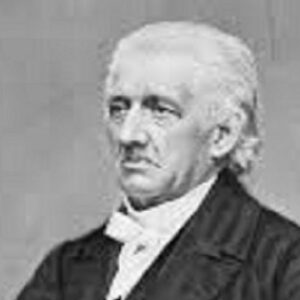American Presbyterian minister, reformer, and revivalist Lyman Beecher helped start the American Temperance Society. Beecher was born in Connecticut to a blacksmith. He was taken in by an uncle and raised on a farm. Later, he went to Yale University and got a degree in theology. After becoming a pastor in 1799, he spoke at the Presbyterian Church in East Hampton, Long Island, then at a church in Connecticut, and finally in Boston. In the meantime, he preached against dueling and drunkenness in a series of sermons that helped temperance reform a lot. Later, he also helped start the American Temperance Society. During his time as pastor, Beecher fought against the growing disagreement with Unitarianism. He was also accused of being a modern Calvinist and tried for heresy, but was found not guilty. In the meantime, he became the first president of the new Lane Theological Seminary in Cincinnati, Ohio, and worked as a pastor until 1843. Beecher moved to Boston for a short time after leaving the seminary. There, he focused on writing. Beecher was married three times and had 13 children. Seven of his sons became Congregational ministers, and two of his daughters became well-known writers. After that, Beecher moved to New York to live with his son, where he stayed for the rest of his life. Beecher is still thought of as one of the most powerful American speakers of his time. He had a strong personality and a sharp way of talking.
Childhood & Early Life
Lyman Beecher was born on October 12, 1775, in New Haven, Connecticut, U.S., to David Beecher, a blacksmith, and his wife, Esther Hawley Lyman. Shortly after Lyman’s birth, his mother died and Lyman was adopted by his uncle, Lol Benton.
Although raised on a farm by his uncle and aunt, Lyman had little interest in agriculture and wanted to study. In 1793, he was enrolled at Yale University, graduating with a degree in theology in 1797.
While studying, he was much influenced by the religious beliefs of the college president, Timothy Dwight, a poet and a Congressional clergyman. In 1798, Lyman attended the Yale Divinity School under Dwight who advocated a view of religious life as an active pursuit of godly social order.
Lyman Beecher’s Career
In 1799, Beecher was ordained as a clergyman of the Presbyterian Church at East Hampton, Long Island, New York, and subsequently established himself as a moral reformer.
While serving as a pastor on Long Island, he proved himself to be an effective preacher and revivalist. In the meantime, Beecher also initiated a campaign and published a sermon against the practice of dueling.
In 1810, he accepted the post of minister at the Congregational Church of Litchfield, in Connecticut, serving for the next 16 years. During this period, he influenced a large number of people in the battle to defend Calvinism and also emerged as a leading voice in the temperance movement, publishing ‘Six Sermons on Intemperance’.
Impressed by his evangelization in defense of orthodox Christianity against Unitarianism in Connecticut, Beecher was invited to Boston and was appointed a pastor of the Hanover Street Congregational Church, Boston, in 1826.
While in Boston, Beecher maintained his reputation for defending orthodoxy against Unitarianism, raising his voice against liberals and Unitarians. Meanwhile, he also edited a monthly named the Spirit of the Pilgrims which also contributed in his efforts to induce spiritual awakening in the public.
In 1832, he accepted the presidential ship of the newly founded Lane Theological Seminary in Cincinnati, Ohio, a position he retained until 1850. In addition to it, he was appointed the professor of sacred theology, and also served as the pastor of the Second Presbyterian Church of Cincinnati.
In 1835, he published a book titled ‘A Plea for the West in which he articulated the sense of determination he felt in moving to Cincinnati in 1832.
Beecher’s defense of Calvinist orthodoxy was deemed too liberal by the western conservative Presbyterians and as a result, Beecher was tried twice for heresy but subsequently acquitted of the charges.
In 1843, Beecher ended his preaching career and eventually took retirement from the Lane Seminary in 1850. He spent the final years of his life at the home of his son, Henry Ward Beecher, in New York.
His Major Works
Lyman Beecher was one of the most influential Presbyterian clergymen and a noteworthy reformer of his time who served as a pastor for most of his life, trying to defend Calvinist orthodoxy against Unitarianism.
He was a profound revivalist who raised his voice against dueling and intemperance and subsequently co-founded the American Temperance Society in 1826. He was also a prolific writer who authored several important literary works including the ‘Plea for the West (1935). (1935).
Personal Life & Legacy
In 1799, Beecher married Roxana Foote, and the couple had nine children; six sons, William, Edward, Tommy, George, Henry Ward, and Charles, and three daughters named Catharine, Mary, and Harriet Elizabeth. Roxana died in September 1816.
In 1817, he tied the knot with Harriet Porter and fathered four more children; Frederick, Isabella Holmes, Thomas Kinnicut, and James Chaplin. After Harriet’s death in July 1835, Beecher wedded Lydia Beals, who was previously married to Joseph Jackson. The couple had no children together.
Most of his children became important figures in American religious history including Henry Ward, a clergyman and social reformer; Catharine, a leader in the women’s education movement; Harriet Beecher, an American abolitionist, and author, and Isabella Beecher, an activist.
Lyman Beecher died on January 10, 1863, in Brooklyn, New York, U.S., at the age of 87. He was interred at the Grove Street Cemetery, in New Haven, Connecticut.
Estimated Net worth
Lyman is one of the wealthiest Religious Leaders and is on the list of the most well-known Religious Leader. Based on what we’ve learned from Wikipedia, Forbes, and Business Insider, Lyman Beecher’s net worth is about $5 million.


